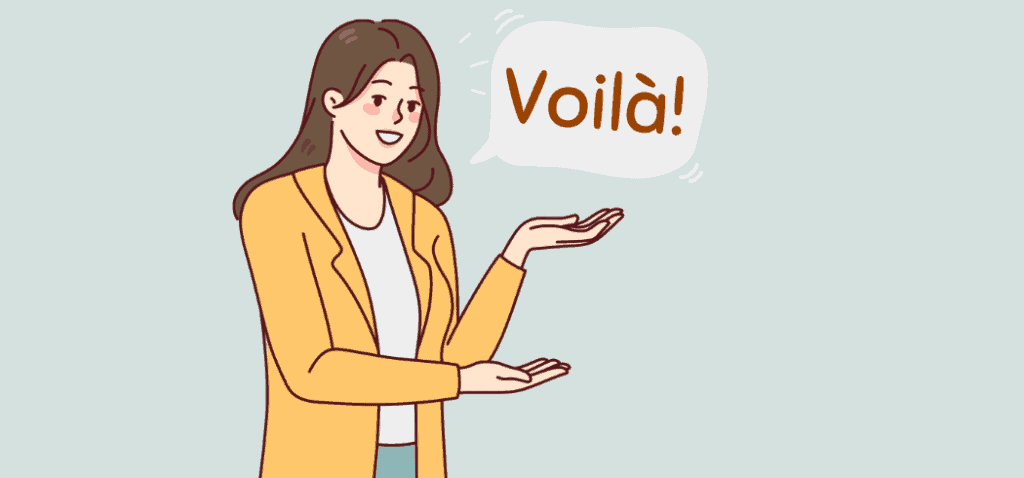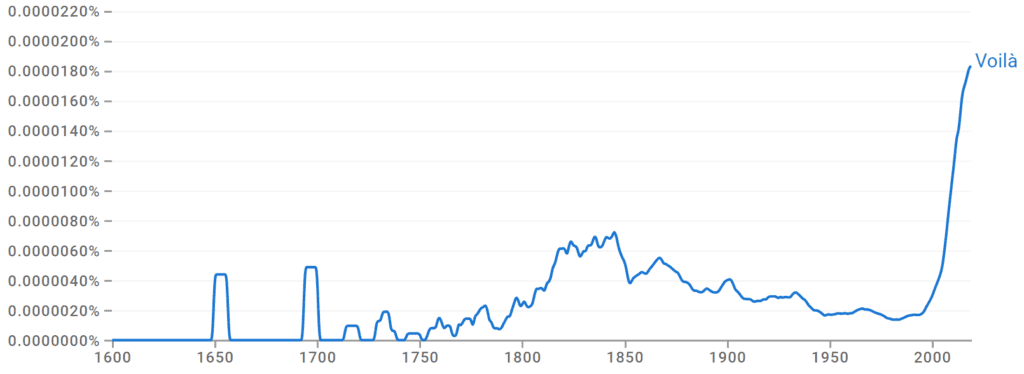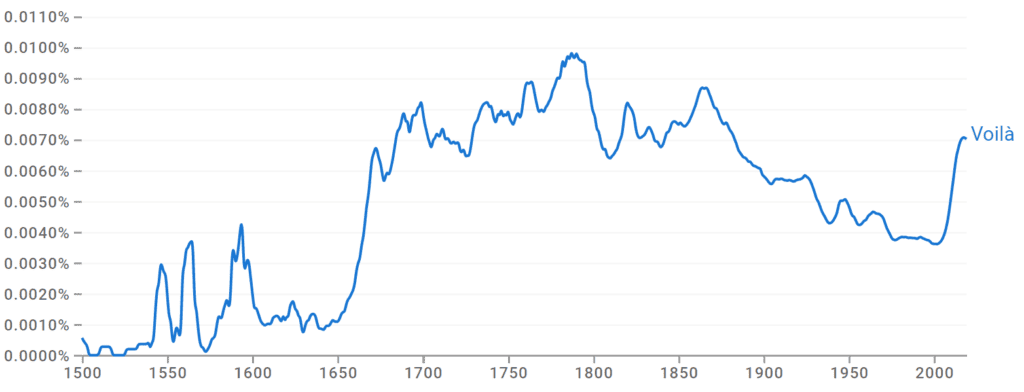The English language can be challenging enough without the addition of various foreign words being integrated into it. But the wide array of cultures and languages that have shaped America has done exactly that.
Certain exclamatory words and phrases from different countries are often threaded throughout the English language. They serve as a way to add emotion and detail to the speaker’s (or writer’s) message.
Voilà is the perfect example of this. This French word has multiple meanings but is mainly used in English to call attention to something with great fanfare and exciting punctuation. Let’s look at its origins and how you can use it to bring excitement and emotion to your own materials.
What Is the Meaning of Voilà?
Voilà is the French-derived interjection meaning, literally, “look there.” In English, it’s often used to call attention to a novel result or to something just completed.
For example:
- Fill out the form, get it turned in, and – voilà! – you’ll be enrolled in the course.
Like most interjections, voilà can be a standalone sentence (usually with an exclamation point), or it can be set apart by commas or em dashes within a sentence.
In French, the word is used as much more than an interjection. It can mean things like here or there, as in Me voilà! (Here I am!). It can also be used to replace the words this or that in an explanation, serve as an informal replacement to explain how long something has been going on, or work as a way to tell somebody you warned them or that they should have listened.
In France, it can also be used as a response to something you agree with. For example, if somebody asked you to confirm that you had reserved a table for an 8 pm dinner, you could respond with “voilà” to express your agreement.
How to Pronounce Voilà
The correct pronunciation of voilà sounds like “vwa la.” It has a very expressive sound and naturally places emphasis on the second syllable, -la.
Unfortunately, it is often pronounced incorrectly when used outside of France, which renders it not as expressive as it should be.
How Do You Spell Voilà
English speakers often pronounce the word as wallah, resulting in various misspellings—including walla, wallah, wa la, and wa-la. It’s also commonly written without the grave accent above the a. However, this is not a serious spelling error, as English speakers typically drop these marks from French loanwords once the words are well-established in our language.
Voilà Origin
Voilà is an imperative of the French word voir, meaning to “see or view,” and la from the Latin ille, meaning “there” or “yonder.”
It first appeared in its modern English use during the first half of the 18th century but has a long history of use in France.
Voilà Used in Sentences
- I was seeking the perfect family photographer and, upon opening the most recent social media page and – voilà! – found exactly what I was looking for.
- Starting a business from scratch takes time and energy, but just when you may consider giving up, voilà, your hard work often begins to pay off.
- The newest app is a perfect solution for gardening aficionados. You simply type in your growing zone, as well as other details, and voilà, receive timely notifications pertaining to the care of your garden.
Let’s Review
Voilà is an interjection used to call attention to something in English. French-derived, it has many other uses in its native tongue. Often mispronounced or misspelled in English, it should always be spelled with the grave accent above the letter -a, and the -v and -w should be pronounced together, as in vwa-la.




Comments are closed.